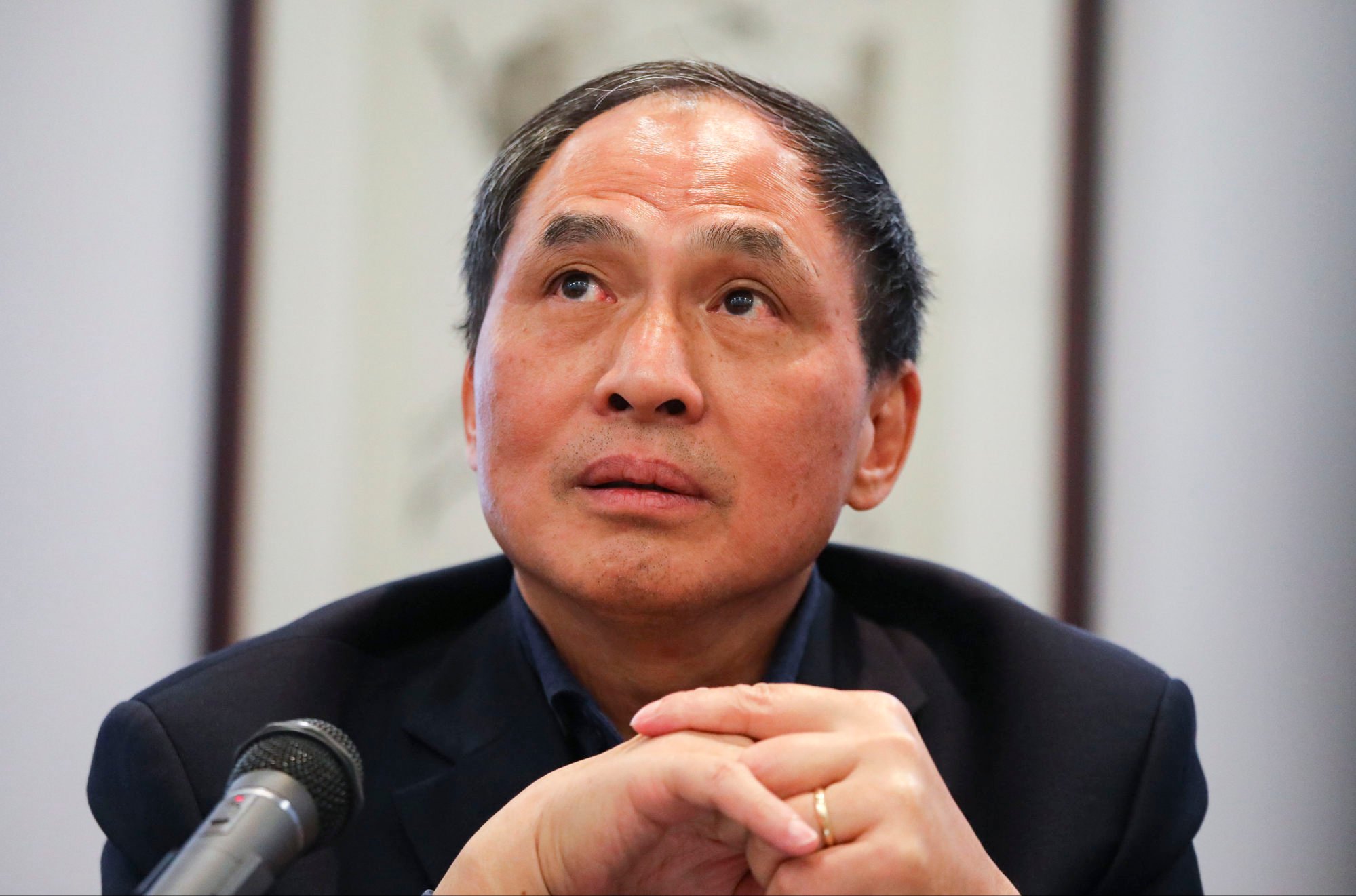
High-powered think tank to boost Hong Kong’s socio-economic standing unveiled with aim to tap into national development
- More than 50 academics and business leaders with extensive experience of China lined up for new think tank under Chief Executive’s Policy Group
- They include academic Zheng Yongnian, Lau Siu-kai of the Chinese Association of Hong Kong and Macau Studies, and Henderson Land Development’s Martin Lee Ka-shing
The 56-strong team, unveiled on Tuesday, will also work in three expert groups – economic advancement, social development and research strategy – under the Chief Executive’s Policy Group (CEPU), headed by Stephen Wong Yuen-chiu.
“I hope to be able to make up for the lost time in the shortest time possible and achieve results. I would like to formulate policies to bring positive values and impacts to Hong Kong in the short, medium and long term.”

The think tank includes top figures from business, finance and the academic world, all appointed with immediate effect for a one-year term.
Zheng was among the experts invited in 2020 to share his views on the country’s 14th five-year plan at a seminar hosted by Chinese President Xi Jinping in Beijing.
He is a graduate of Peking University who went on to study at Princeton University in the United States and his advice is said to be often sought by senior central government figures.
Zheng was also a director of the East Asian Institute at the National University of Singapore.
Other major names on the expert group include Professor Lau Siu-kai, a consultant at the Beijing semi-official think tank, the Chinese Association of Hong Kong and Macau Studies; Adam Kwok Kai-fai, the executive director of Sun Hung Kai Properties; and Martin Lee Ka-shing, the chairman of Henderson Land Development.
“To help Hong Kong integrate into national development, it is natural that the government needs to tap the expertise of those who know China and the Greater Bay Area initiative,” said Lau, also a former head of the government’s Central Policy Unit.
“If the CEPU can make good use of the experts as their mentors or resource persons, it can also help extend the CEPU’s people connection and enhance the quality of their research.”
Lau added he understood the group was expected to meet once or twice a year.
CEPU head Wong said all the members had significant experience and knowledge in their fields and were keen to offer their views and innovative ideas to benefit the city.
Wong added that, in addition to the regular meetings of the new group, his unit would also consult appropriate members on specific areas to maximise use of their specialist skills.
Chan Wai-keung, a Polytechnic University political scientist, agreed that the city government needed more experts on China to help it formulate policies to align with national development amid a difficult geopolitical environment.
“Hong Kong-grown bureaucrats do not seem to understand China much,” Chan said.
“Similar high-profile panels to advise the chief executive have also been formed in previous terms of the government. But not much seems to have been achieved. We just hope the expert group this time will not become just another talking shop.”
Other academics and analysts recruited for the new think tank are Guo Wanda, an economist and executive vice-president of the Shenzhen-based China Development Institute and Professor Huang Ping, the director of the Centre for Taiwan, Hong Kong and Macau Studies at the Chinese Academy of Social Sciences.
Experts from business include veteran investment banker Levin Wang Lei, the chief executive officer of Huatai Financial Holdings, the Hong Kong investment banking arm of Huatai Securities, the third-biggest brokerage in the mainland.
Also signed up is the chief executive of China Development Bank’s Hong Kong branch and Hong Kong Chinese Enterprises Association vice-chairman Li Xiguang.
Hong Xiaoyuan, the non-executive director of China Merchants Bank Company and assistant to the president of China Merchants Group, and Dowson Tong Taosang, the senior executive vice-president of Tencent, a major tech and entertainment company, have also been recruited.
Ma Jun, the chairman and president of the Hong Kong Green Finance Association who was chief economist at the People’s Bank of China research bureau and chief economist for Greater China at Deutsche Bank, is also on board.
The government in March also announced the establishment of the chief executive’s Council of Advisers. The council, made up of 34 members, is an advisory body for the city leader on the strategic development of Hong Kong.
It also has three subgroups – economic advancement and sustainability, innovation and entrepreneurship, and regional and global collaborations.
Council members include business leaders such as Victor Li Tzar-kuoi, Robert Ng Chee-isong, Peter Woo Kwong-ching, Allan Zeman, Guy Bradley, Victor Fung Kwok-king and Bernard Chan.


